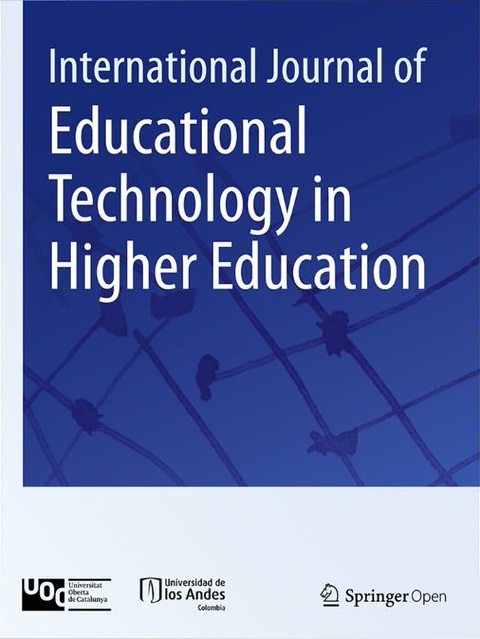AI-generated feedback on writing: insights into efficacy and ENL student preference
IF 16.7
1区 教育学
Q1 EDUCATION & EDUCATIONAL RESEARCH
International Journal of Educational Technology in Higher Education
Pub Date : 2023-10-27
DOI:10.1186/s41239-023-00425-2
引用次数: 0
Abstract
Abstract The question of how generative AI tools, such as large language models and chatbots, can be leveraged ethically and effectively in education is ongoing. Given the critical role that writing plays in learning and assessment within educational institutions, it is of growing importance for educators to make thoughtful and informed decisions as to how and in what capacity generative AI tools should be leveraged to assist in the development of students’ writing skills. This paper reports on two longitudinal studies. Study 1 examined learning outcomes of 48 university English as a new language (ENL) learners in a six-week long repeated measures quasi experimental design where the experimental group received writing feedback generated from ChatGPT (GPT-4) and the control group received feedback from their human tutor. Study 2 analyzed the perceptions of a different group of 43 ENLs who received feedback from both ChatGPT and their tutor. Results of study 1 showed no difference in learning outcomes between the two groups. Study 2 results revealed a near even split in preference for AI-generated or human-generated feedback, with clear advantages to both forms of feedback apparent from the data. The main implication of these studies is that the use of AI-generated feedback can likely be incorporated into ENL essay evaluation without affecting learning outcomes, although we recommend a blended approach that utilizes the strengths of both forms of feedback. The main contribution of this paper is in addressing generative AI as an automatic essay evaluator while incorporating learner perspectives.

人工智能生成的写作反馈:对效能和ENL学生偏好的洞察
如何在教育中有效地利用大型语言模型和聊天机器人等生成式人工智能工具的问题正在进行中。鉴于写作在教育机构的学习和评估中发挥着至关重要的作用,对于教育者来说,就如何以及以何种能力利用生成式人工智能工具来帮助培养学生的写作技能,做出深思熟虑和明智的决定就变得越来越重要。本文报告了两项纵向研究。研究1在为期六周的重复测量准实验设计中检查了48名大学英语作为一门新语言(ENL)学习者的学习成果,实验组收到由ChatGPT (GPT-4)生成的写作反馈,对照组收到来自他们的人类导师的反馈。研究2分析了另一组43名enl的看法,他们从ChatGPT和他们的导师那里得到反馈。研究1的结果显示,两组之间的学习成果没有差异。研究2的结果显示,人们对人工智能生成的反馈和人工生成的反馈的偏好几乎持平,从数据中可以明显看出,这两种反馈形式都有明显的优势。这些研究的主要含义是,使用人工智能生成的反馈可能会被纳入ENL论文评估,而不会影响学习结果,尽管我们推荐一种利用两种反馈形式优势的混合方法。本文的主要贡献在于将生成式人工智能作为自动论文评估器,同时结合学习者的观点。
本文章由计算机程序翻译,如有差异,请以英文原文为准。
求助全文
约1分钟内获得全文
求助全文
来源期刊
CiteScore
19.30
自引率
4.70%
发文量
59
审稿时长
76.7 days
期刊介绍:
This journal seeks to foster the sharing of critical scholarly works and information exchange across diverse cultural perspectives in the fields of technology-enhanced and digital learning in higher education. It aims to advance scientific knowledge on the human and personal aspects of technology use in higher education, while keeping readers informed about the latest developments in applying digital technologies to learning, training, research, and management.

 求助内容:
求助内容: 应助结果提醒方式:
应助结果提醒方式:


